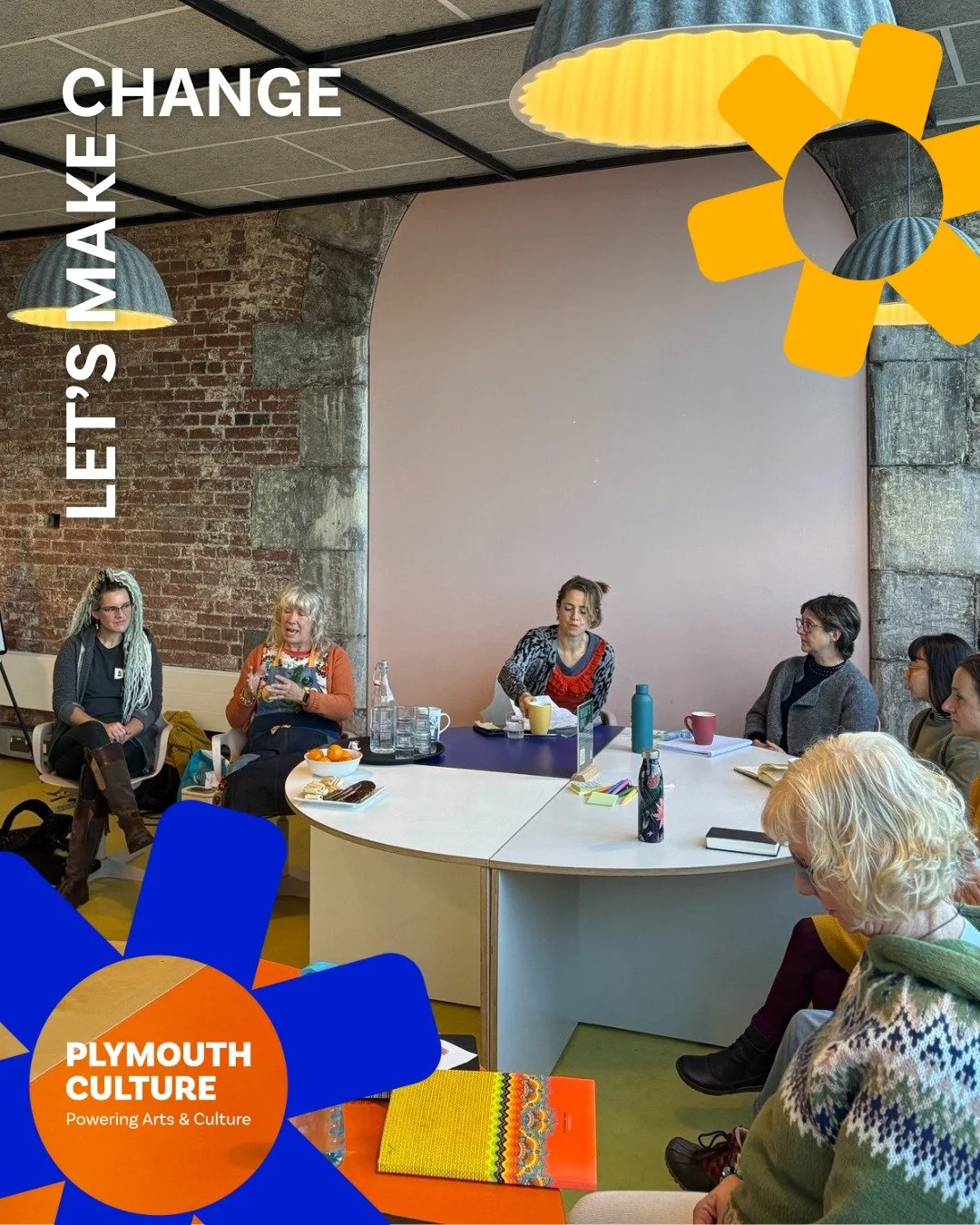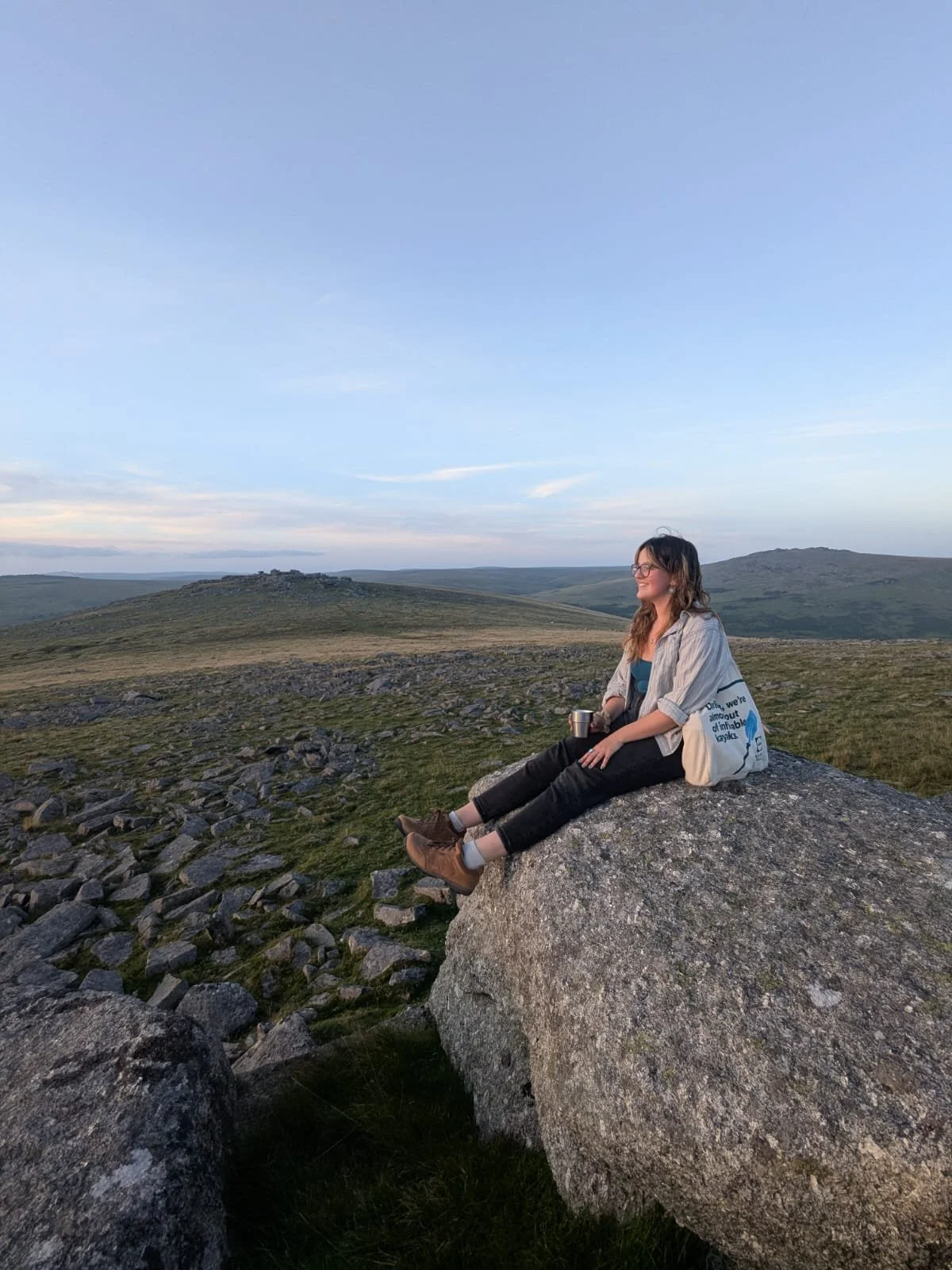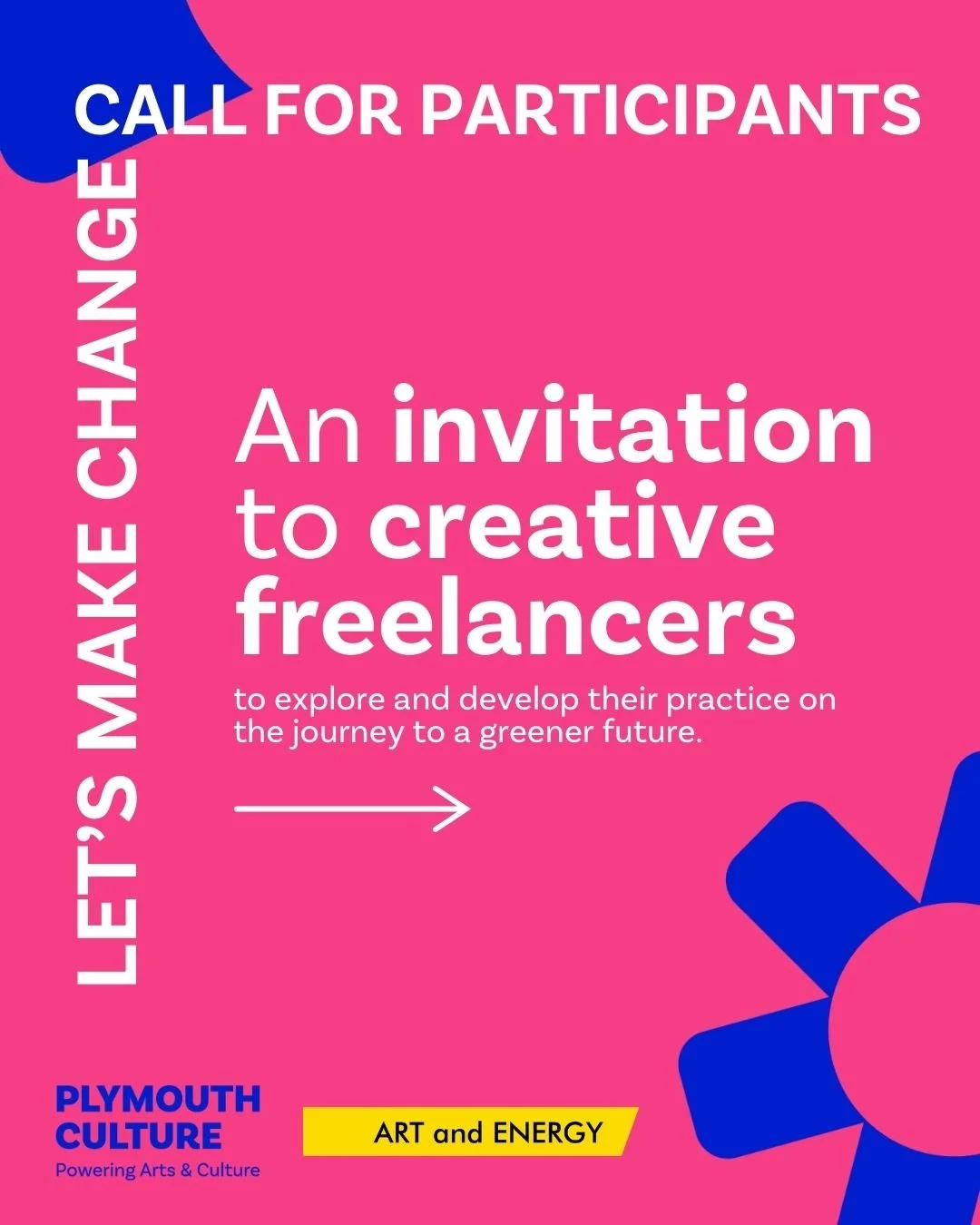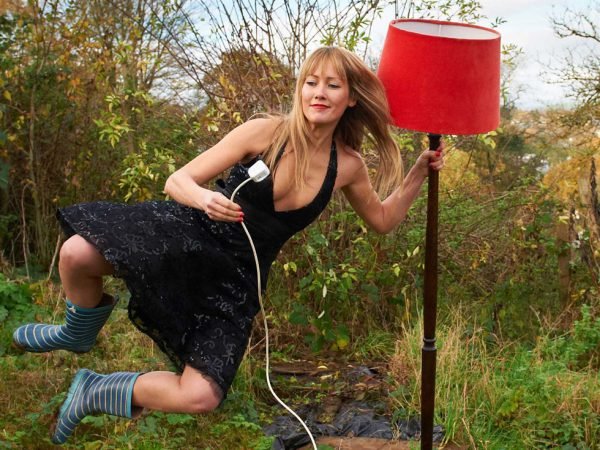



If I can’t dance I don’t want to be part of your revolution!
Reflecting on Dominique Palmer’s Vision for a Climate Joy Revolution.

Art and Energy: Why Creativity Matters in Times of Crisis
A reflection on a project that we worked on with Matt Harvey and Thomas Hewitt Jones back in the day - Transition Town: The Musical - Or SWIMBY - Something Wonderful in My Back Yard.
It seems to me that being in a time of crisis can shape or destroy your creative practice.



Let’s Change Culture: Considering the SDGs
The Art and Energy Collective contributes to multiple United Nations Sustainable Development Goals (SDGs) by combining creativity with climate action and community engagement.
Can those of us working in support of a better world wear these badges better?

Let’s Change Culture: What next?
Over the past few months, we’ve been gathering in Plymouth, exploring how the culture sector can respond meaningfully to the climate and ecological emergencies. Through deep discussions, creative workshops, and shared inquiry, we’ve uncovered key questions, tensions, and opportunities that shape our ability to act.

Let’s Change Culture: Embedding climate action in your group
During our most recent Let’s Change Culture session with the Culture Sector in Plymouth we explored ways to embed climate action in our teams and audiences.
Here is a summary of the group’s thinking.

Let’s Change Culture: Developing carbon and climate literacy
Cultural organisations can play a pivotal role in addressing the climate emergency by equipping their teams with the necessary knowledge and skills. Implementing Carbon Literacy or climate and ecology training is an effective strategy to foster environmental awareness and action within your organisation.

Let’s Change Culture: Considering patronage
For decades, fossil fuel companies have sponsored the arts, securing public goodwill and cultural influence. But as institutions sever ties, can renewable energy step in—and how should impact be measured?

Let’s Change Culture: Beyond Energy Reduction
For cultural organisations, creative venues, and artists, energy use is increasingly part of climate conversations. Many in the sector are being asked to assess their carbon footprints, cut emissions, and even offset their impacts. Reducing energy consumption is vital—but we must also look at the bigger picture.

Let’s Change Culture: We need to celebrate more
It’s easy to get caught in the mindset that nothing is ever enough. But recognising progress isn’t about ignoring the challenges—it’s about fuelling ourselves to keep going.

Let’s Change Culture: From Extraction to Enrichment
In our Let's Change Culture discussions, we explored how the term "community engagement" is often misused or misunderstood, particularly by local authorities and organisations. True community engagement involves meaningful dialogue, trust-building, and agency for participants, but this isn’t always what people experience.
Let’s have enriching engagement experiences rather than purely extractive ones.

Let’s Change Culture - Collaging new ideas
in a recent creative engagement session with the "Let's Change Culture" group, facilitated in collaboration with Plymouth Culture, I led participants through a collage-making exercise. The idea behind this session was simple but impactful: to understand creative engagement better, through doing and self-reflection to remember what it’s like to experience it first hand (rather than be the facilitator which is what most creatives usually experience!).

What might a better world be like and how can we get there?
What might a better world be like? How could we all get there together? Is art really an essential part of the journey? These are some of the questions we’ll explore in this ‘Let’s Change Culture’ blog.

Creative Community Engagement for a better world
Creative engagement refers to the process of involving people in activities that stimulate creativity, imagination, and participation. It can take many forms, from interactive art projects and collaborative performances to workshops, storytelling, and hands-on crafting. The goal of creative engagement is often to inspire new ways of thinking, foster community involvement, and encourage personal expression.
In contexts like climate change or social issues, creative engagement can also help people process complex emotions, consider alternative futures, and take action through a more inclusive and imaginative approach.

Ways the arts can drive behaviour change
If our gut instincts are what drive a high proportion of what we do, then we can’t rely on logic to change our patterns of behaviour, it means we have to work on the subconscious, pre-conscious, embodied stuff. Participating in the arts could support this. I love the idea that by inviting ourselves to be creative in response to the climate challenge, we allow ourselves to take steps on the journey from where we are to where we might want to be.

Art and the Limitations of ‘Net Zero’ Thinking
Many artists who are deeply concerned about the climate crisis feel trapped by this concept. They worry that even creating art—something often seen as a life-enriching and essential activity—might contribute to the problem. As a result, some assume that the best thing they can do for the planet is to stop creating altogether, to 'do nothing.' However, this mindset misses the potential that art and creativity have in reshaping how we interact with the planet.
